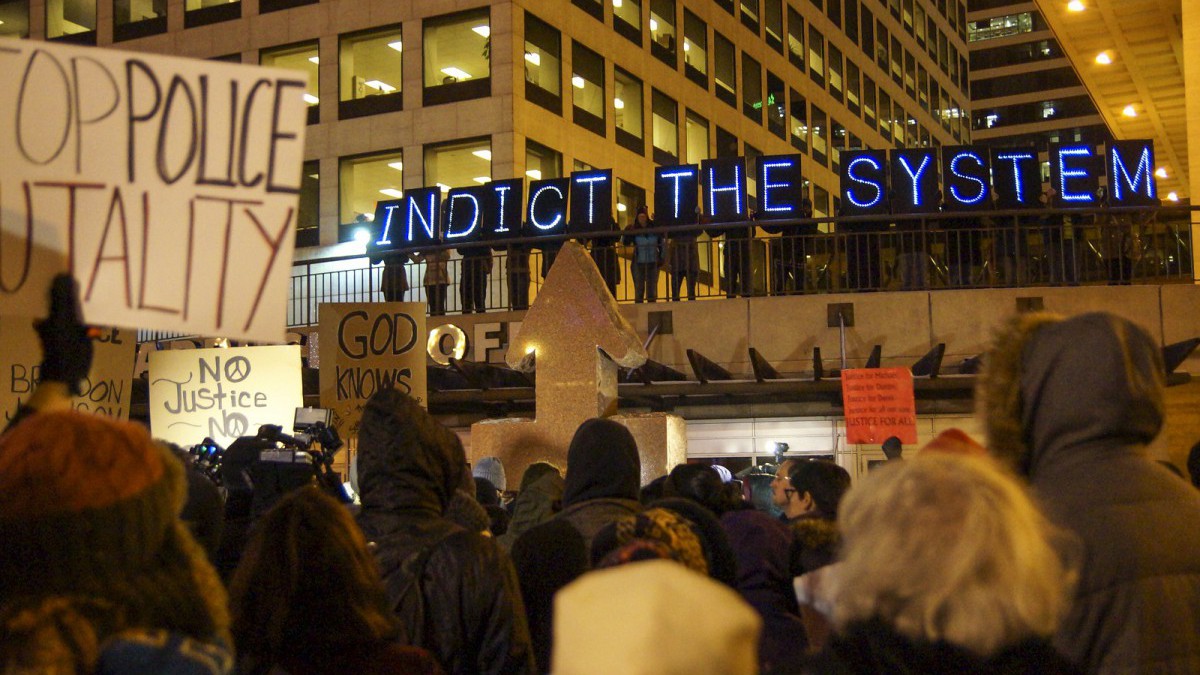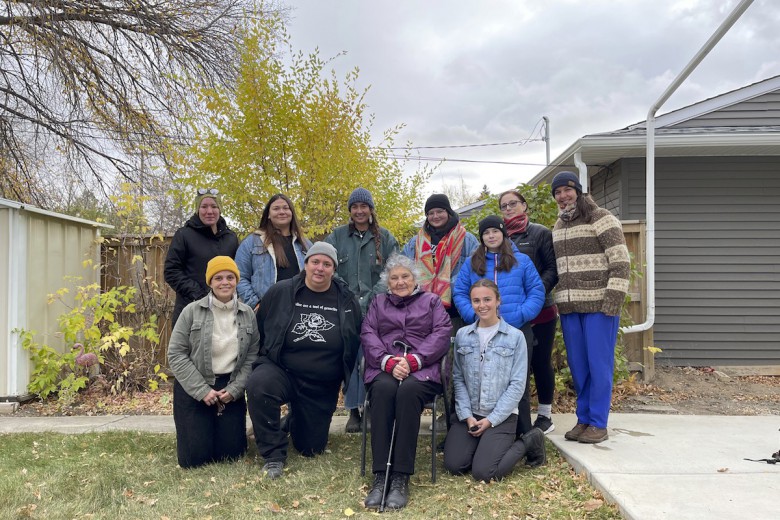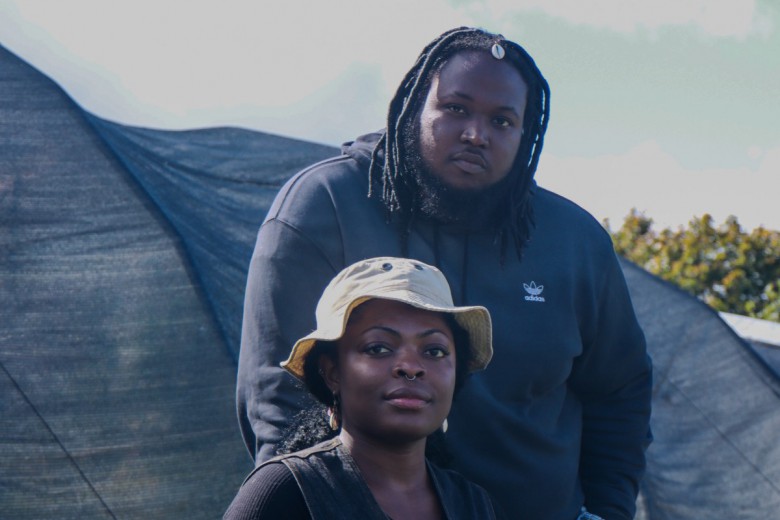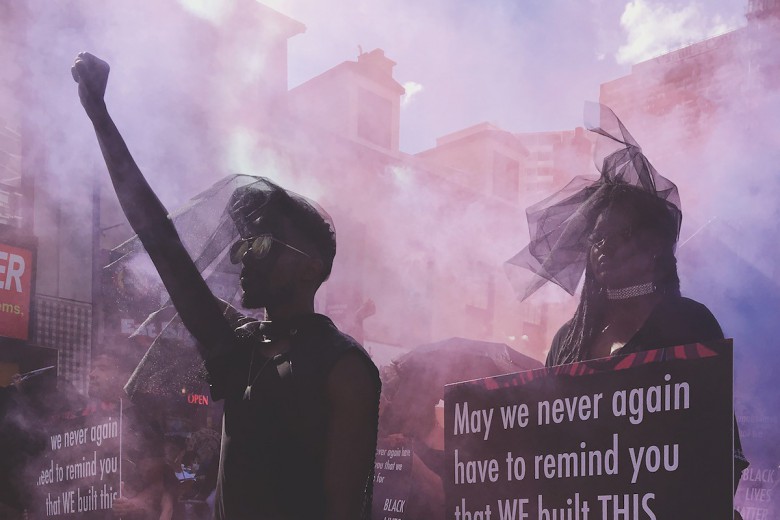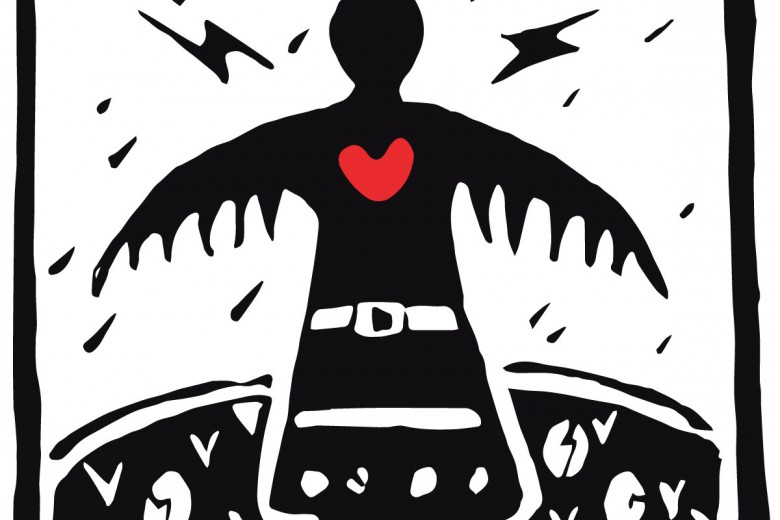Like many others on Tuesday night, I watched the live stream of Missouri Prosecutor Robert McCulloch delivering what was clearly a public relations campaign, justifying the grand jury’s decision not to indict white police officer Darren Wilson in the murder of 18-year-old Michael Brown.
While few were surprised at the decision, McCulloch’s orchestrated performance contributes to the systemic expression of anti-Blackness that began on Turtle Island when Afrikan peoples were violently stolen from their Indigenous homelands and brought by white people, to ours. An anti-Blackness that is intrinsically linked to the genocide, white supremacy, heteropatriarchy, and colonialism used to maintain the dispossession of Indigenous peoples from our homelands on Turtle Island and to erase our bodies from Canadian society. An anti-Blackness that is just as real and alive in Canada as it is in the United States.
As Black communities respond to the Ferguson decision in cities across the United States this week, their rage resonates with me in a familiar way because it comes from a similar place as my own. On the streets that night and in the days that have followed, rage. I have seen an expression of tremendous Black love for children and family, a tremendous Black love for culture, body, and people, coupled with a tremendous outrage with a colonial system that is designed at its core to destroy Black and Indigenous love. This same fertile ground birthed the so-called “Oka Crisis” and the Idle No More movement. This same ground compels the ongoing resistance of Indigenous women and Two Spirit peoples to all forms of colonial gendered violence.
In watching the mainstream media’s coverage of these events it seems difficult for Canadian and American society to see that love and rage are justified – to see Indigenous and Black peoples as fully human. I am repeatedly told that I cannot be angry if I want transformative change – that the expression of anger and rage as emotions are wrong, misguided, and counter-productive to the movement. The underlying message in such statements is that we, as Indigenous and Black peoples, are not allowed to express a full range of human emotions. We are encouraged to suppress responses that are not deemed palatable or respectable to settler society.
But the correct emotional response to violence targeting our families is rage.
We have survived 400 years of racialized gendered violence designed to remove us from our lands and assimilate us into the colonizer’s agenda. The idea that we should all remain positive and calm, while 1,200 Indigenous women and girls are disappeared in Canada, while Black people are gunned down in the streets by white police officers, security guards, and vigilantes every 28 hours, while the legal system will not even provide a trial to the perpetrators of violence, is unfathomable.
I’ve asked myself more than once this week, why is there more outrage in American and Canadian societies over property damage than toward the state-sanctioned violence that is normalized in the everyday lives of Indigenous and Black peoples? I believe that our lives matter more than a burnt police car even if the state and other narratives do not.
I was reminded over and over this week that Black and Indigenous communities of struggle are deeply connected through our experiences with colonialism, oppression and white supremacy. Indigenous and Black peoples are disproportionately attacked and targeted by the state and, in fact, policing in Turtle Island is born of the need to suppress and oppress Black and Indigenous resistance to colonialism and slavery. Indigenous and Black women are consistently de-centered from our communities and targeted by four centuries of gendered violence and Black Queer and Indigenous Two-Spirit communities are targets of multiple sites of oppression, violence and erasure. Black and Indigenous children have been stolen from their families throughout colonial history through the institutions of slavery and residential school, the child welfare system. We are interconnected through systems of oppression that would prefer us not to exist unless it can exploit us as commodities for labour.
In both our communities of struggle, however, youth are brilliant leaders in resistance and resurgence. The work of the Native Youth Sexual Health Network and the Dream Defenders – just two of many for youth by youth organizations – remind me to nurture our relationships to each other by creating decolonial constellations of resistance and love as a mechanism to ensure we are no longer complacent in the oppression of each other. These young leaders are showing us through their lives that by collaborating with each other we can build collective power and grow mutually caring communities of support and resistance.
I was also reminded that my liberation as an Indigenous woman is linked to the liberation of Black women, and the Two Spirit and Queer community, and I’ve learned by listening to Black feminists like Audre Lorde, bell hooks, Angela Davis, Luam Kidane, and Hawa Y Mire that resurgent Indigenous and Black feminisms are the spine of our collective liberation. #BlackLivesMatter, is “an online platform developed after the murder of Trayvon Martin, designed to connect people interested in learning more about and fighting back against anti-Black racism” created in 2013 by three Black Queer women, Alicia Garza, Patrisse Cullors and Opal Tomet. I am grateful to them for the platform, discussion and action their work as inspired, because it is a clear reminder that in the face of a system that seeks to also erase us, #IndigenousLivesMatter too.
To me, Ferguson is a call not only to indict the system but to decolonize the systems that create and maintain the forces of Indigenous genocide and anti-Blackness. I have a responsibility to make space on my land for those communities of struggles, to centre and amplify Black voices and to co-resist. We both come from vibrant, proud histories of mobilization and protest, and it is the sacrifices of our Elders and our Ancestors that ensured that our communities of struggle continue to exist today. They believed in their hearts that there is no justice and no peace until we are all free, and so must we.
Thanks to Jarrett Martineau, Tara Williamson, Glen Coulthard, Eric Ritskes & especially Luam Kidane for comments on previous drafts. Image courtesy of decolonizingmedia.tumblr.com.
This piece was first published at leannesimpson.ca


